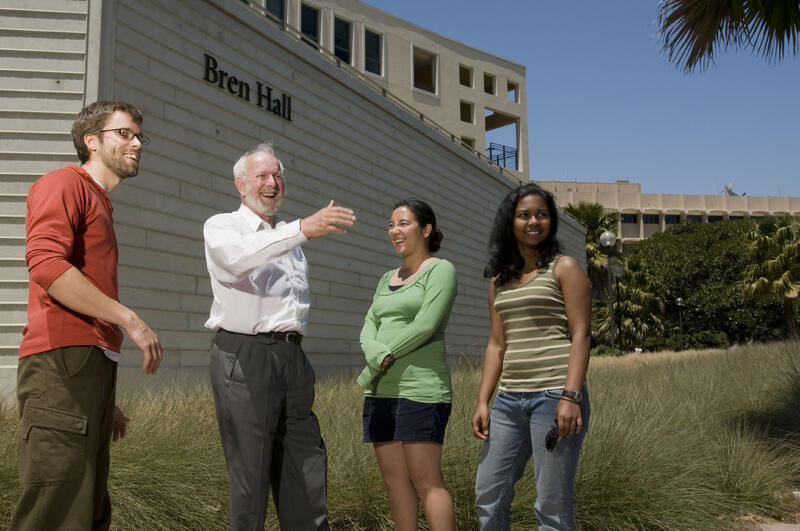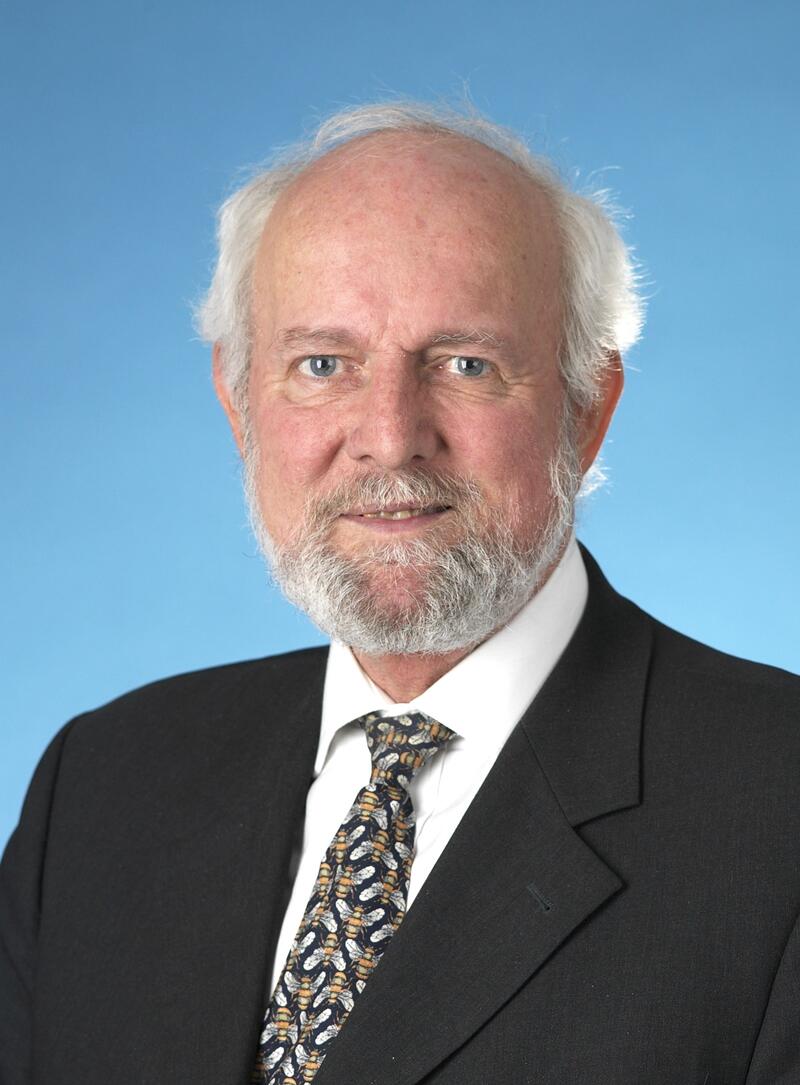“A resolute pioneer of sustainable management”
“For decades, Ernst Ulrich von Weizsäcker has been explaining to politicians and managers all over the world how the growing human population can satisfy its increasing needs while at the same time preserving nature as an essential basis for survival. We owe it partly to his work that concepts of sustainability have established themselves in society, politics and businesses.” – With these words, Dr Fritz Brickwedde, Secretary General of the Deutsche Bundesstiftung Umwelt (DBU), today announced the awarding of the DBU’s 2008 German Environmental Award to the scientist Prof. Ernst Ulrich von Weizsäcker (69), Dean of the Donald Bren School of Environmental Science & Management at the University of California in Santa Barbara. German President Horst Köhler will present him with the prize, the most lucrative environmental award in Europe, in Rostock on 26 October. His prize money: 250,000 euros.
An "outstanding personality who is known worldwide for finding revolutionary answers to global environmental problems"
Dr Brickwedde praised the Zurich-born nephew of former German President Richard von Weizsäcker as an “outstanding personality who is known worldwide for finding revolutionary answers to global environmental problems.” Prof. von Weizsäcker, he said, had the rare gift of being able to communicate complicated environmental topics in a comprehensible manner and to convey them in down-to-earth terms to people coming from different spheres. He also commended Prof. von Weizsäcker for his work in giving exemplary advice to leading figures in business, politics and science at both a national and international level, and in establishing networks of experts from different scientific disciplines to the benefit of the environment.
As founding president, he played a major role in establishing the Wuppertal Institute for Climate, Environment and Energy
It was not only as a physicist and versatile biologist that Prof. von Weizsäcker had left his mark, Dr Brickwedde said, but also as president of Kassel University, director of the UN Centre for Science and Technology in New York and director of the Institute for European Environmental Policy in Bonn, London and Paris, among other things. As founding president, he played a major role in establishing the Wuppertal Institute for Climate, Environment and Energy. Under his almost ten-year leadership, it became one of Europe’s most important and influential institutes in matters regarding climate policies and energy efficiency.
Prof. von Weizsäcker published influential and popular books such as "Factor Four"
Dr Brickwedde mentioned how, as an expert on environment, eco-efficiency and biology, Prof. von Weizsäcker, a member of the Club of Rome, had published influential and popular books such as “Factor Four” (1995). This report to the Club of Rome became a best-seller and was translated into twelve languages. It contains many examples of how doubling distributable wealth while halving the use of resources is possible and can bring about a noticeable improvement in the quality of life.

©
The introduction of tax incentives for saving energy was partly due to Prof. von Weizsäcker's influence
In 1992, he published the book “Ecological Tax Reform” for the Earth Summit in Rio de Janeiro – “a vital document for governments about how ecological tax reforms can be implemented as a political instrument for climate protection,” according to Brickwedde. In many of his publications, he calls for an efficiency revolution. The oft-cited slogan he invented, “Make kilowatt hours unemployed, not people!” summed up his principle, Dr Brickwedde said. He said the introduction of tax incentives for saving energy was partly due to Prof. von Weizsäcker’s influence.
He was adviser to the then UN secretary general, Kofi Annan
Dr Brickwedde said that Prof. von Weizsäcker had also achieved international respect as head of the enquiry commission “Globalisation of the World Economy”, set up by the German Bundestag parliament from 1999 to 2002. In this capacity, he was adviser to the then UN secretary general, Kofi Annan. In 2002 he was appointed to the World Commission on the Social Dimension of Globalisation. From 2002 to 2005 he was the chairman of the Bundestag Committee for Environment and Nature Conservation. Dr Brickwedde praised his crucial role in the introduction of emission trading and the effective incentive system for renewable energy sources. Between 2003 and 2004 he worked as Germany’s representative on Tony Blair’s working committee on climate policies, which prepared the guidelines for Great Britain’s climate protection scheme for the G-8 meeting in Gleneagles.
The Bren School had become a model for interdisciplinary teaching and research activities in the USA
Prof. von Weizsäcker was again carrying out pioneering work as Dean of the Donald Bren School in Santa Barbara at the University of California, Dr Brickwedde said: “The Bren School is one of the few specialist institutes in the USA to dare to tackle the mixture of environmental science and management in research and teaching.” This institute, Dr Brickwedde said, identified environmental problems of the 21st century and developed approaches to solve or avoid them. He said the Bren School had become a model for interdisciplinary teaching and research activities in the USA.
He wants to break the connection between economic growth and destruction of the environment
In addition to his work as dean, Prof. von Weizsäcker was appointed co-chairman of the new UNEP Panel for the Sustainable Use of Natural Resources. Its activities are intended to help boost resource-friendly market development worldwide and to encourage sustainable innovations that break the connection between economic growth and destruction of the environment. Prof. von Weizsäcker also advises the Chinese government on environmental and development issues.
"Environmental policies play a decisive role in peace processes and development worldwide"
His scientifically founded ideas on caring for the environment have an established place in policies on climate and environment today, according to Dr Brickwedde: “Environmental policies now go far beyond the national framework. They play a decisive role in peace processes and development worldwide. We owe this partly to the work of Ernst Ulrich von Weizsäcker.”

©